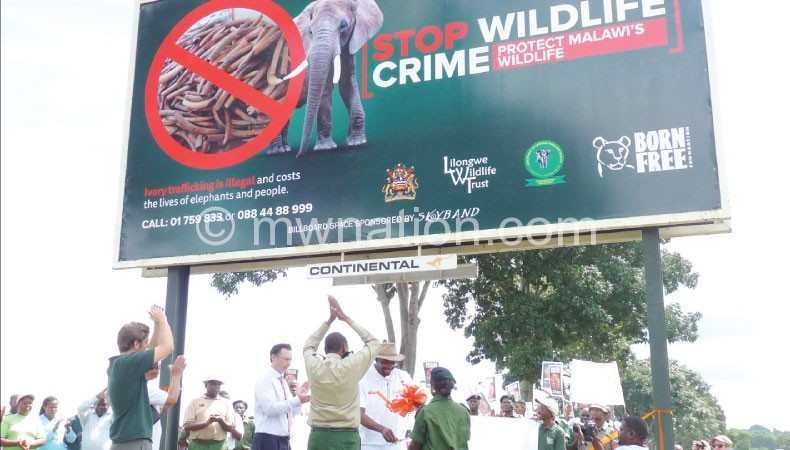Malawi partners Zambia in wildlife protection

The governments of Malawi and Zambia have gone into a partnership aimed at protecting wildlife in national parks and game reserves in the border districts of the two countries, Minister of Tourism Wildlife and Culture Moses Kunkuyu has said.
Speaking on the sidelines of Wildlife Day commemorations last week, Kunkuyu said the two countries want to promote local and international networks in the management of wildlife.
“While promoting local networking in the management of wildlife, the Ministry of Tourism has gone a step further to partner with Zambia Wildlife Authority (Zawa) to go into the Transfrontier Conservation Areas (TFCAs) where national parks that are in our borders will be managed as one unit,” he said.
Kunkuyu cited Nyika and Kasungu national parks as well as Vwaza Marsh Wildlife Reserve as some of the protected areas which will be managed under the TFCA. He said Cabinet has already approved the treaty that legalises the TFCA arrangement with Zambia.
He added that while promoting biodiversity conservation, this arrangement is instrumental in solidifying bilateral relations between the two countries, thereby contributing to peace in the Sadc region, which is one of the tenets of the TFCAs.
The minister said government has embarked on restocking wildlife reserves such as Liwonde National Park and Majete Wildlife Reserve with animals that were extinct such as the black rhino so that Malawi has the ‘big five’ which is a major catalyst for tourism.
“The ministry has made remarkable strides in enhancing wildlife conservation in this country in the past 50 years, including developing progressive legal and policy frameworks which enabled migration from the unpopular fences and fine approach to a more inclusive wildlife management strategy,” Kunkuyu said.
He, however, decried poaching which he said is rampant due to the increase of human population.
According to the minister, the national population of elephants has decreased from around 4 000 to less than 2 000 over the past couple of years.
Kasungu National Park, for example, used to have over 2 000 elephants, but recently the number has reduced to about 200 due to poaching.
Department of National Parks and Wildlife director Brighton Kumchedwa confirmed that the population of animals such as lions, leopards and elephants is on the decline.
“We used to have 10 000 elephants in the 1980s, but now we only have about 2 000. In Kasungu National Park, there are only 200 while in Vwaza there are about 300.
If poaching is not checked, it will be very difficult for the country to attract tourists because it does not make sense for one to go into a game reserve and not see any wild animal,” said Kumchedwa.





